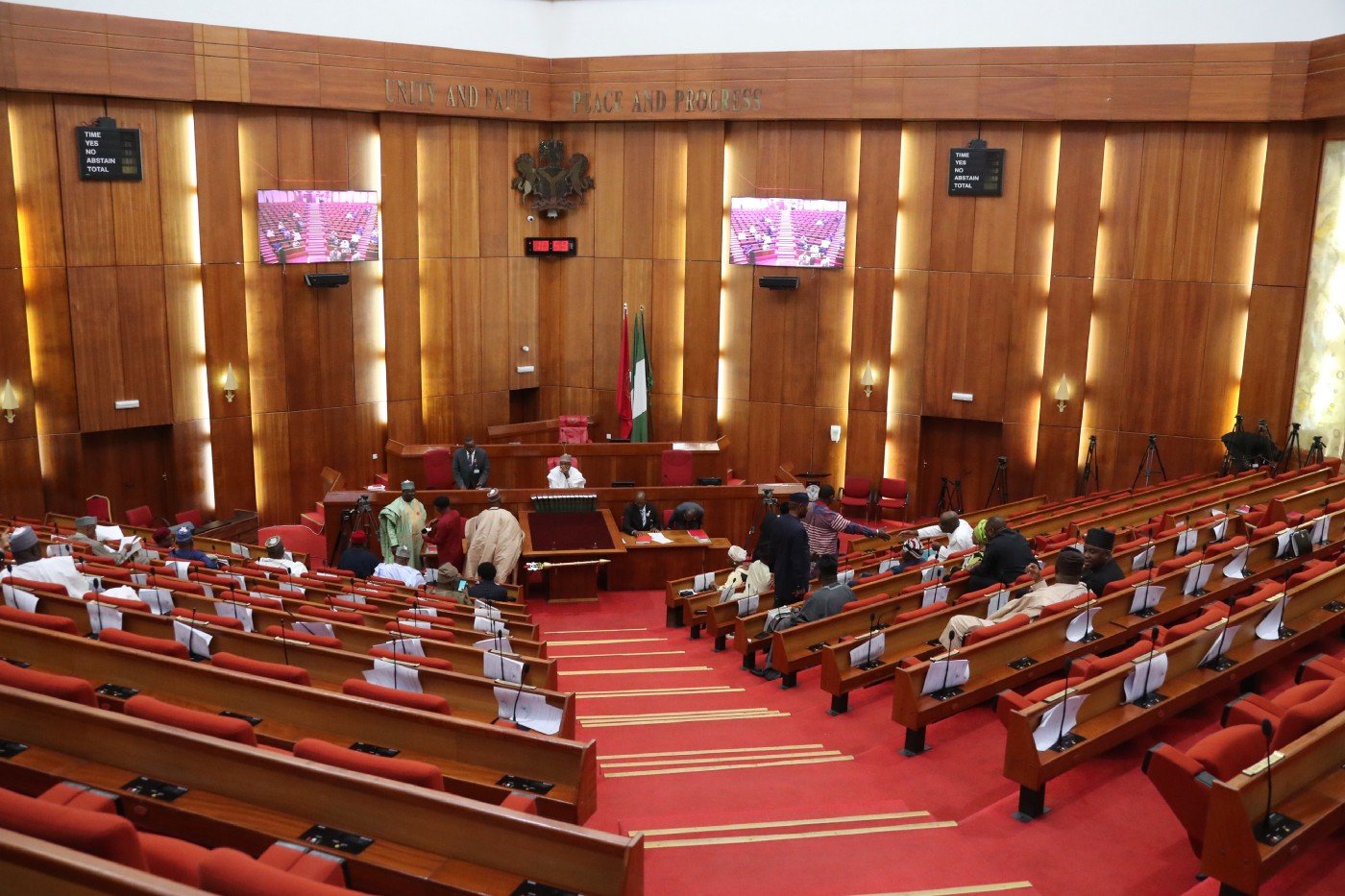BY BANJO DAMILOLA
Zamfara state has been a hot tub of killings and kidnappings. The media is awash with reportage of these incidents, daily reeling out figures of lives lost. These lives are fathers, mothers, sons and daughters who have been gruesomely uprooted from their families. ‘Blood-Thirsty Demons of Zamfara’ is a four-part series that chronicles the pains, losses and sufferings of families being crushed by the ongoing banditry in the state. Banjo Damilola travelled to the burning spots in Zamfara State to put faces to the ‘figures’ being reported daily.
A common thread of monumental loss runs through the stories of every emirate visited by the brutal bandits. They are the footprints left behind in these communities to say ‘we were once here’. These pains and losses, most often, change the course of the residents’ lives; they are indelible scars they will bear to their graves.
Hadiza and Fatima fled Kayayi village in Shinkafi LGA, after the murder of their husband, Yussuf Lawal. The two women have become inseparable since they left their village for the city. They depend on each other for strength to navigate this new world they now live.
Advertisement
The two women kept a solemn countenance. It was obvious that adapting to the world where they had no male figure to guide, guard and provide for them was strange but they had no choice; seven children were depending on them for daily survival.
Lawal, their husband, was murdered in cold blood by the bandits who routinely launched attacks in Kayayi village.
“What happened was the bandits knocked our door,” she begins. “My husband stood up and locked the door but they used their saw blade to cut the door down. They drew him out and shot him.”
Advertisement
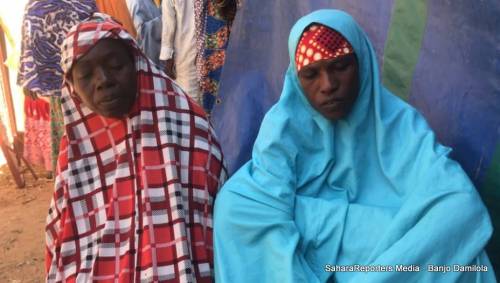
The bandits were enraged by Lawal’s attempt to prevent them from gaining entrance into the room. So, when they shot him, they took him along with them to watch him draw his last breath. Hours later, Hadiza received a call that her husband was dead. After killing him, they phoned her to inform her of their dastardly deed. They did that only to increase her pains, his body was also not released to her neither could anyone risk going in to pick his corpse — that would be a suicide mission.
As Hadiza narrated the tragic incident that flung them into a totally different life, Fatima, the younger wife, shook her head in regret. Her face wore the agony that she had gone through in commensurate degree. Her brow contorted into furrows. Her eye bags were swollen, heavy with the sorrow of loss. Things were bad and her demeanour was a dead giveaway. She seemed to have lost the ability to smile or even be happy.
What is there to be happy about? They live in an abandoned structure with no means of sustenance. They rely on alms and charity from people. Their seven children have dropped out of school.
“I lost a lot,” says Fatima. “I don’t have a husband. My husband did not leave any treasure for us. He sold our farmland and animals to cater to our needs and he is not here to help. Our children are no more going to school.”
Advertisement
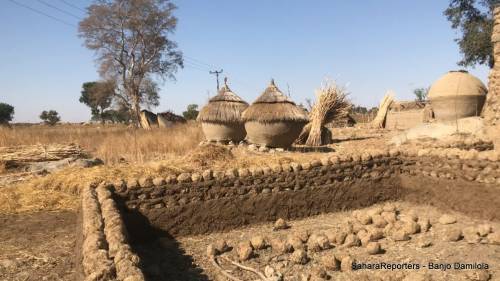
A dead loved one is better than a lost one, according to a popular Yoruba maxim. The rationale for this would be that one might find solace in the irreversibility of death and the hope that the great beyond is a better place, but one might never find closure knowing that one’s loved one might be out somewhere, helpless — perhaps hapless too — and subjected to inhumane conditions.
Ammu Ibrahim is from Yan Taskuwa, a small village in Shinkafi LGA. She has her tribal marks tattooed on her forehead. Ammu has worn the tattoo as a symbol of her heritage and identity. It has been what announced her even before she introduced herself. This cultural symbol has also become a reminder of a ruined home and a lost husband.
Ammu’s husband was kidnapped by bandits from her village. With no money to pay the ransom demanded, he remained in captivity. Although she is hopeful her husband is still alive, there is no way to know for sure. Ammu has five children with no means to provide for their basic needs. She says she has lost everything and except her husband returns, she doubts she would ever smile again.
“I don’t know where my husband is,” she says. “He was kidnapped by the bandits… I don’t have a husband now and I am left with small kids. There is no support. It is only God that is helping us.”
Advertisement
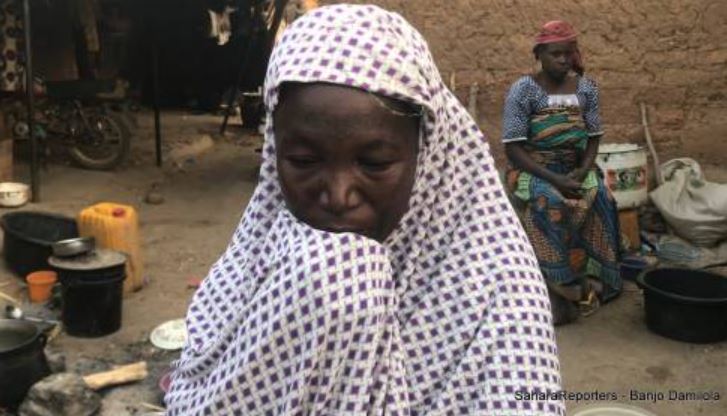
The 35-year-old mother of five looks forward to when she would return Yan Taskuwa with the hope that one day, perhaps, her husband would return, and that she would be home to receive him and maybe recreate a happy home she used to have with him, their children and the extended family.
Advertisement
“I want my husband back home because we were living peacefully before the incident,” she grunts under her breath.
This, sadly, is mere wishful thinking.
Advertisement
The village has been deserted with many of Ammu’s relatives killed. Those who were lucky, like her, to escape the fangs of the bandits are flung in different directions, trying, as she is doing, to mend the pieces left of their shattered lives.
THIRTY-FOUR DAYS IN CAPTIVITY
Advertisement
Wasilat was also kidnapped from Kayayi village. The night she was kidnapped alongside 15 other women made it the fourth time the bandits would storm the village, hacking off doors in their usual callous manner and taking the women of the perceived affluent villagers. Wasilat’s husband was not home when she was snatched from her matrimonial home, she said.
She had prepared her older children for bed and was rocking her last child, who was a year and some months at the time, to sleep. Suddenly, a crushing sound from the heel of one of the bandit forced her door open. Her four older children whose sleep was also interrupted by the sound began crying. The sights of these men were terrifying. These are men who entertain no entreaties, even that of the innocent children rudely jolted out of sleep.
“I was begging them, that my husband was not around but they would not listen,” she recalls.
The mother, with her toddler, latched to her back, was hurried out of her home to join others who had been ripped away from their bed that night. Wasilat remembers it was about 11pm on a Friday. She and eight other women already kidnapped were taken from home to home, as the bandits knocked down doors to kidnap more women. By 11:30pm, 16 women had been held hostage in Kayayi village.
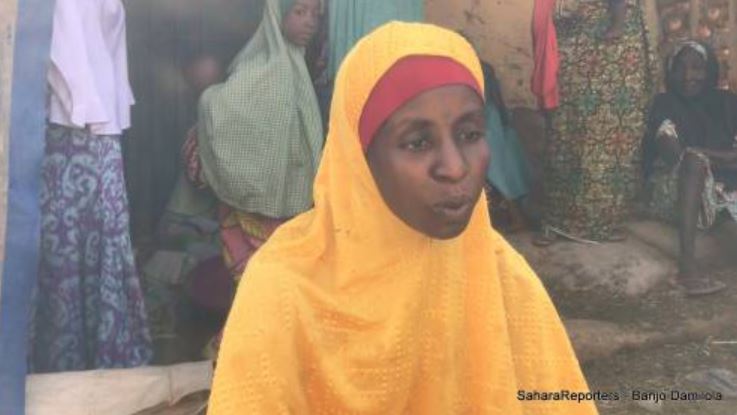
With 16 bounty heads, the bandits had their full loot for the night. They then led the women into a thick forest, to their hideout where Wasilat would later be held for 34 days.
“On Saturday, they untied us while speaking with our husbands,” she recalls.
The bandits began dictating what every one of the women was worth. The next four days, according to Wasilat’s account, four of the women were killed. Their husbands had said they could not afford the bounty placed on them, and the bandits would not release them as that would create a bad precedent. They could not also keep them, as that would be an avoidable burden, so they slaughtered them like goats each day to instil fear in the others.
Wasilat’s husband, a rich cattle rearer, paid N5.7million to save his wife and baby but the bandits refused to let them go despite the millions already collected.
“He paid our ransom three times; the first time was N2 million, the second ransom was also N2 million and lastly N1.7 million. It was the number they gave my husband that he used to call them to give them the money but they denied that the money was not given to them. So they threatened that they will kill me and my baby on Thursday.”
Wasilat was told she and her daughter would be executed on Thursday just like the four who were executed in gestapo style. But, on a Wednesday night, that could have been her last night, one of the bandits had a brief repentant moment, took pity on her little child and showed Wasilat and four others the route out of the hideout.
She ran through the forest for hours, trying to find her way back to Kayayi village. She finally got into her village midday, tired and most of all thankful.
After her escape from the bandits’ hideout, Wasilat and her husband packed what was left of their belongings and let the village for the town in Shinkafi LGA. Her husband has moved to Sokoto state to find some sort of employment. He has no farm; his life savings had been exhausted on ransom.
“I can’t go back to my village because I am scared of what happened. Now I am living with my relatives, they are the one catering for us. We want the government to intervene and provide security,” Wasilat pleaded.
KILL THE HEAD, DISPLACE THE FOLLOWERS

The death of Ibrahim Madawaki, the district head of Kucheri, sent a signal to other traditional leaders. Although Madawaki was not first the traditional ruler to be murdered by the bandit, he was the first Hikimi with his clout that was killed.
The evening Madawaki was killed, Salamatu, the last wife of the traditional head, said her months old twin girls could not sleep all through the night. “They cried all night,” she says. “It was like they knew something had happened to their father.”
Madawaki’s murder was widely reported in the media. He was a village head with the clout to extract condolence message from the state government, a privilege very few families enjoy. But, there are more villages that have been deserted and their village heads killed, without the media ever finding out. The murder of Alhaji Mamman was one of such.
When the bandits first attacked Tungar Kolo, another village in Shinkafi LGA, they were repelled by the vigilantes before they could do much damage. With crude guns and the determination to keep their women and children safe, the men in the village faced the fierce bandits on seven different occasions, until their leader was struck.
The gruesome murder of Hadi and Alhaji Mamman, the vigilante leader and village head of Tungar Kolo, defeated the village. Once the two leaders were killed, the message became clearer to every other person in the village. There was no winning the battle; so they packed what was left of their belongings and began to leave the village one after the other.
Over a hundred houses — including farmlands — were burnt to the ground in Tungar Kolo.
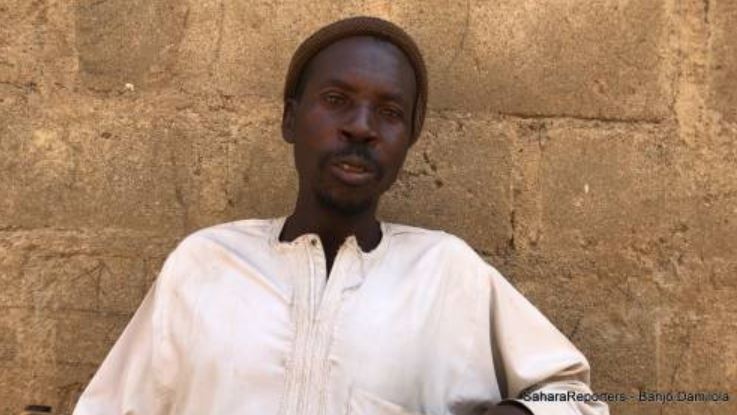
Isah Shuaib, a former resident of Tungar Kolo who now lives with his two wives and eight children, in Jauri, a small community in Gusau, knows the exact number of animals that were stolen from the village. He said the bandits went away with “700,115 sheep and 330 cows.”
The death of Hadi and Mamman was the last strike that dispersed residents of Tungar Kolo. They could no longer confront the bandits. The vigilante group dissolved and moved out of the village.
“As I speak with you, a single hen is not in our village again, not to talk of human beings,” Shuaib said with regret-laden voice.
In Tsuare village, the village head was not killed, his subjects were dissipated under his watch and he could do nothing. “Under my custody in Tsaure they killed more than 100 people,” Samaila the traditional ruler of Tsaure, says.
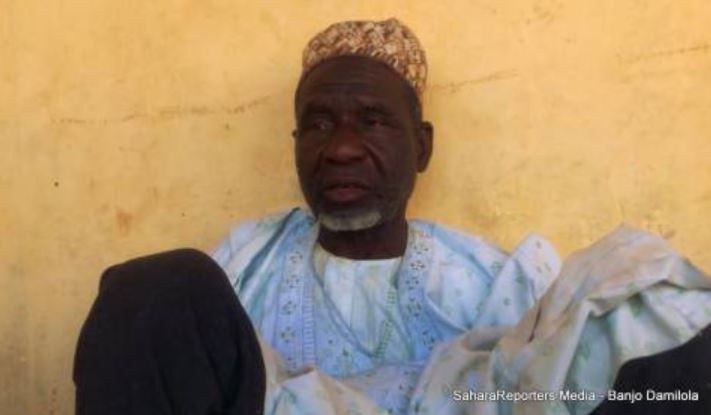
Samaila, an agile looking octogenarian, lives in a crowded one-room apartment with his son, in Kucheri. He had left his village in the dead of night, with his son, Sulaiman, and few clothes.
Samaila was born into royalty. He inherited the now deserted throne from his father, just as his father took it from his father’s father. But all 83-year-old Samaila has left of his royalty are memories buried in the chambers of his mind. He now lives like every other victim of banditry in Zamfara.
In Kucheri, a community in Tsafe LGA, where he has been for the last three months, he said he shares a single room with 30 other people.
“I am really not happy living here,” he says, “because the place is overcrowded and not conducive to our health”.
ONEC UPON KARA MARKET
Kara means abattoir in Hausa, or a place where cows are sold. Apart from farming, cattle rearing is the next major trade in Zamfara State. Cow merchants from Lagos and other southwestern states in Nigeria buy livestock from these markets, but since the crisis in the state, traders have migrated to other Kara markets outside Zamfara. Trade has significantly dropped and what used to be full, noisy cow markets have become large, quiet fields with lonely pegs.
In the early days of the crisis, when cattle rustling were the only problems Zamfarans had to deal with, the Kara market in Gusau was the conversion ground of the rustlers. They sold the stolen cows at cheaper prices to dispose of them very quickly. The crisis then worsened and the market soon became endangered. Not only did the looted cows not sell in the market anymore, Gusau’s Kara Market and similar markets across the state also became subjects of attacks.
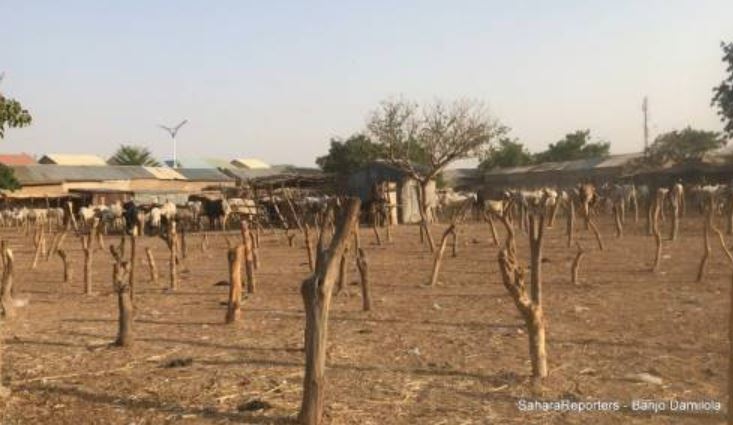
The Zanfara state police command foiled an attack on the Kara Market in Talata Mafara community, sometime in 2018. Twelve suspects were arrested in connection to the attack. Some rustlers were also arrested in Gusau’s Kara market about the same period.
As Kara markets became targets of these numerous attacks, cows, goats and rams began to disappear from the pegs without replacement. As cattle rearers got killed in the villages, the markets’ sizes also shrank.
“These sticks (pegs) you see used to have animals tied to them but everywhere is now empty,” laments Mohammed, a young man who used to have a robust business selling cows.
Lawali Muhammadu Gusau, the treasurer of Kara Market in Gusau, corroborates Mohammed’s claim, saying banditry “has really affected business” because of the increased attacks on cattle rearers across the state.
“We can no longer find most of them,” he says. “People no longer come to buy rams here because they are afraid of being killed or kidnapped.”
This story first appeared on SaharaReporters
Add a comment
